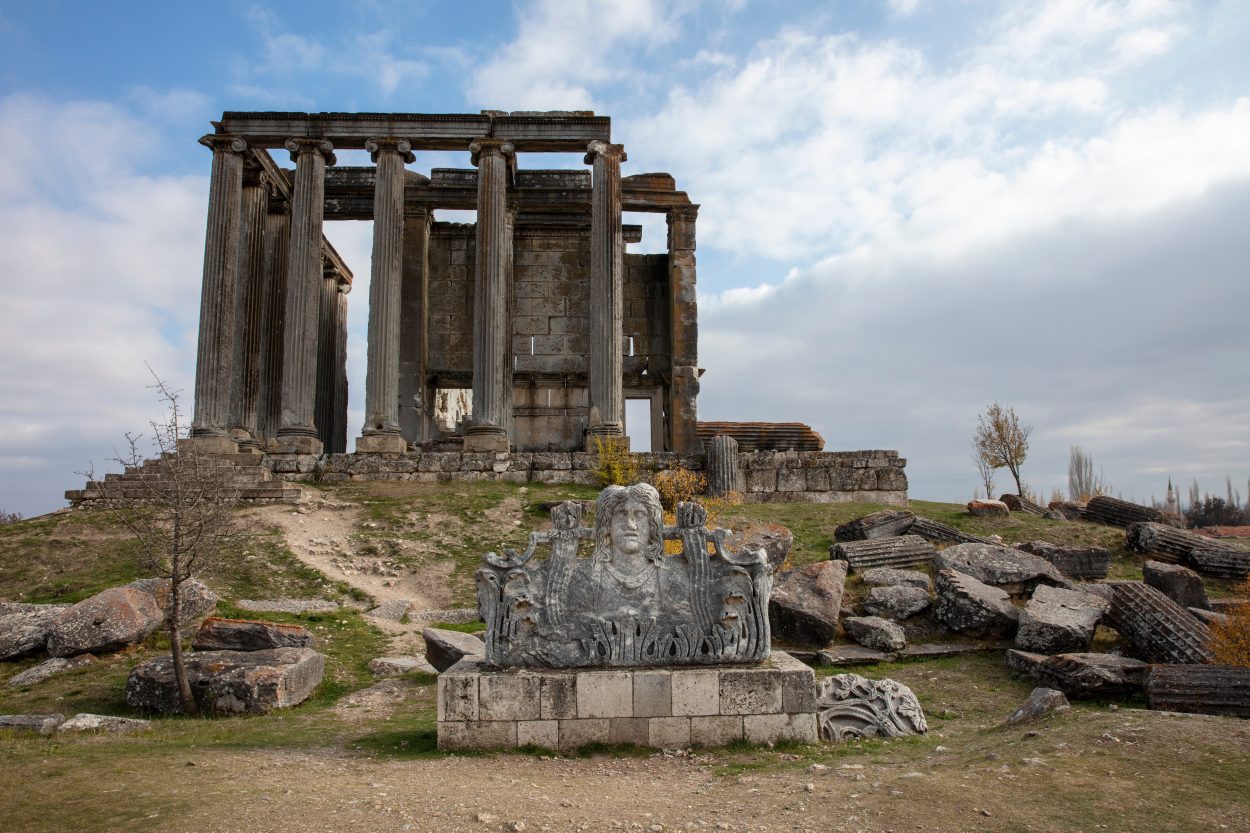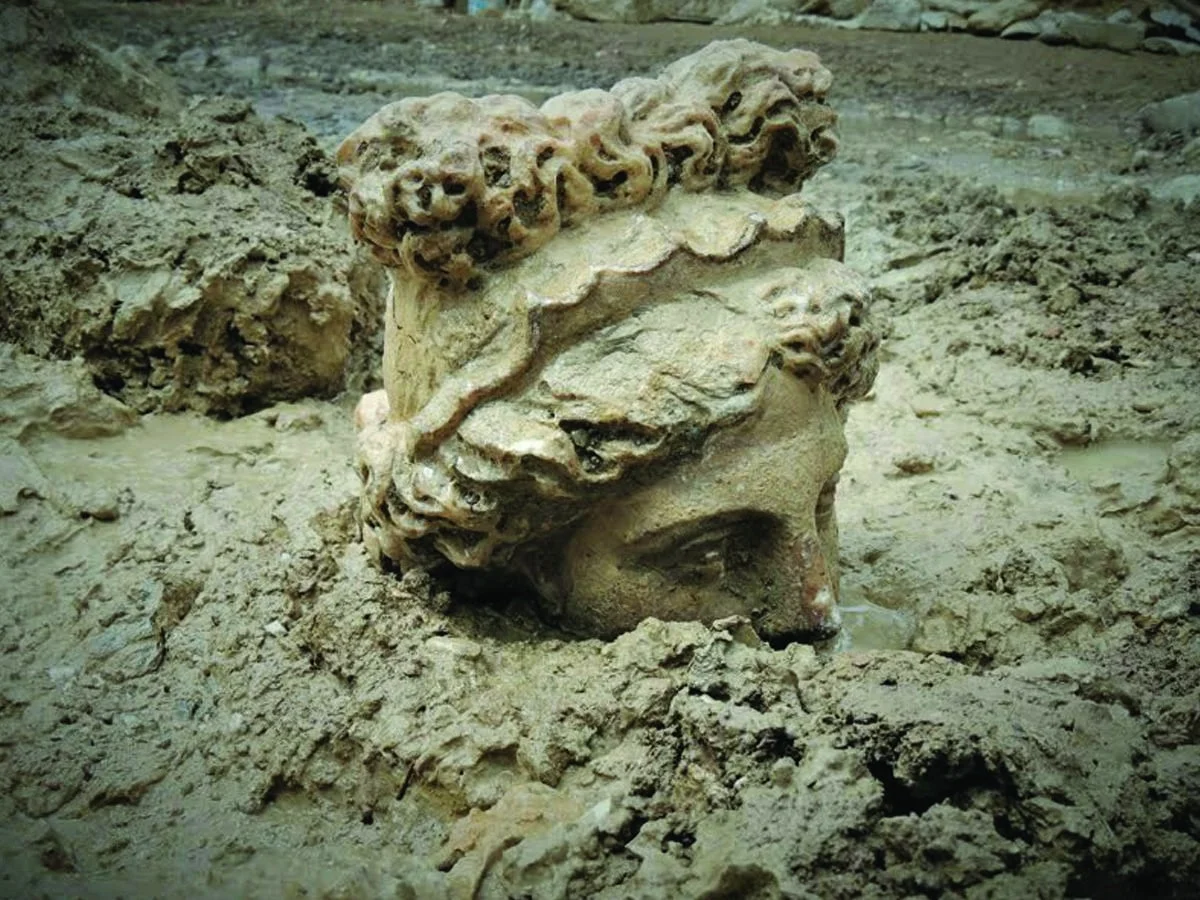Archaeologists from Kütahya Dumlupınar University have discovered statues representing Aphrodite and Dionysus in the ancient city of Aizanoi.
Aizanoi was an Ancient Greek city in western Anatolia, located in what is now Çavdarhisar, near Kütahya in present-day Turkey.
Aizanoi has been occupied since the Bronze Age, emerging in the Hellenistic period as an important political and economic centre. In 133 BC, the city was bequeathed to Rome, becoming part of the Roman province of Phrygia Pacatiana.
Surviving remains from the period include a well-preserved Temple of Zeus, a theatre-stadium complex, and macellum inscribed with the Price Edict of Diocletian.

Excavations were conducted as part of the Penkalas project, where archaeologists found two heads depicting Aphrodite, an ancient Greek goddess associated with love, lust, beauty, pleasure, passion and procreation, and Dionysus, the god of the grape-harvest, wine, of fertility, orchards and fruit, vegetation, insanity, ritual madness, religious ecstasy, festivity and theatre in ancient Greek religion and myth.
Previous excavations have uncovered fragments of a statue depicting Hygieia, a goddess of health, cleanliness, and hygiene, which combined with the latest discovery sheds new light on polytheistic worship in Roman times, and suggests the presence of an ancient sculpture workshop in the region.
Archaeologists told GEO: “We know that Aphrodite and Dionysus existed under different names in Roman times. These findings are important to us because they show that the polytheistic culture of ancient Greece existed for a long time without losing its importance in the Roman era”.
Header Image Credit : Bahar Cumingur





